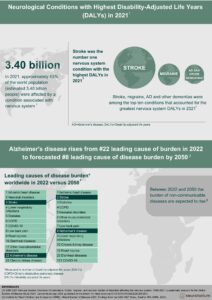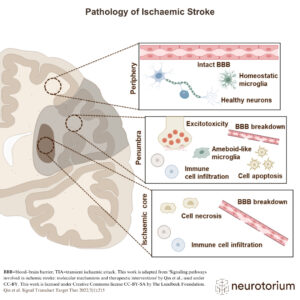The burden of stroke has changed globally over the last 40 years: while high-income countries have seen a 42% reduction in stroke burden, low and middle-income countries, particularly in Africa, India, and Asia, have experienced a doubled burden, largely due to the rise of non-communicable diseases like hypertension, obesity, and diabetes.
Professor Mayowa Owolabi introduces the ‘Stroke Quadrangle’ as a comprehensive approach to tackle this issue. This four-pronged strategy includes:
- Improved surveillance to track stroke occurrences and risk factors
- Effective prevention measures through health promotion and risk factor control
- Enhanced acute care services
- Rehabilitation services to improve the quality of life for stroke survivors.




